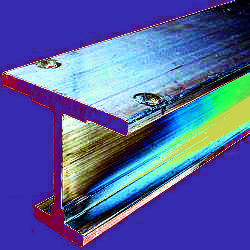Japan eyes local steel
 Australia is on the list of possible sites for a major ‘green steel’ project by a Japanese giant.
Australia is on the list of possible sites for a major ‘green steel’ project by a Japanese giant.
Nippon Steel, Japan's largest steel manufacturer, is considering a substantial investment in a green steel project that would run on hydrogen, as the global effort to decarbonise one of the most polluting industries gains momentum.
The company is exploring the possibility of a project outside Japan, which may cost approximately ¥100 billion (AU$1.1 billion) or more, according to Takahiro Mori, the executive vice president responsible for global operations.
Australia and Brazil are among the potential locations, as high-quality iron ore is available along with cheaper electricity than in Japan.
Steel is a crucial component of the global economy, necessary for infrastructure, automobiles, and appliances. Producers are seeking methods to reduce their carbon footprints while demand for steel continues to grow.
The industry is one of the world's largest polluters because it depends on coal-fired blast furnaces, particularly in Asia, which accounts for more than 70 per cent of worldwide output.
“We can't avoid pathways toward carbon neutrality,” Mr Mori says.
“We are currently evaluating multiple projects to see if there is anything that meets the requirements for green steel manufacturing or investment.”
Nippon Steel and its competitors ArcelorMittal, the world's largest steelmaker outside China, and China Baowu Steel Group have all pledged to become carbon neutral by the middle of the century.
In addition, South Korean competitor Posco recently announced plans to invest US$40 billion (AU$59.6 billion) in hydrogen production and green steel with partners in Australia by 2040.
The manufacturing of green steel differs from conventional steel in the way it is produced, with no distinguishing standard or criteria.
Traditionally, steel is produced by heating iron ore with coking coal in a blast furnace. One way to decarbonise the process and reduce emissions is to replace the fossil fuel with hydrogen.
Nippon Steel intends to increase the use of hydrogen in existing blast furnaces to meet its carbon objective, as well as construct 100 per cent hydrogen-based direct-reduction plants.
Additionally, the company is increasing its recycled metal production by remelting scrap in electric-arc furnaces. The company aims to decrease emissions by 30 per cent by the end of the decade as a waystation to carbon neutrality by 2050.
Mr Mori stated that Japan's high electricity costs present a barrier to domestic production, prompting the firm to look for alternatives outside the country.








 Print
Print